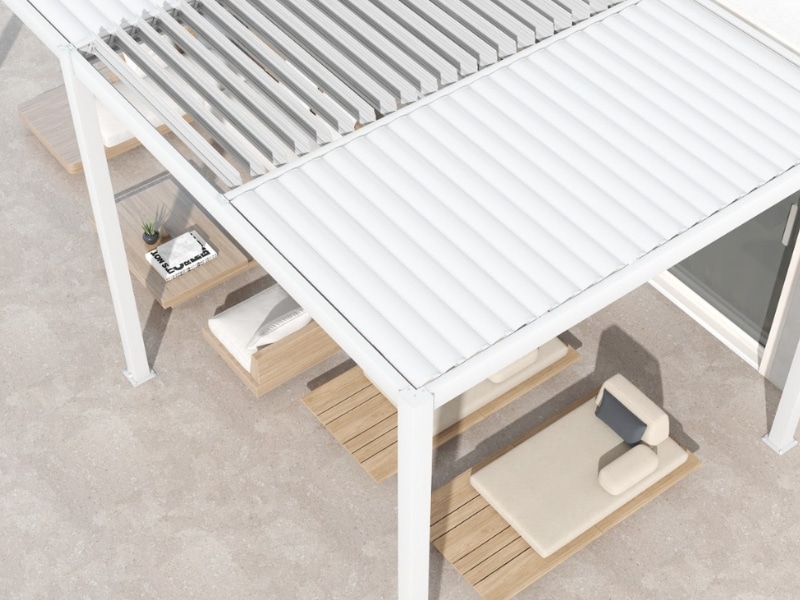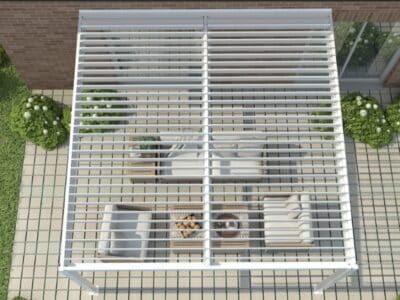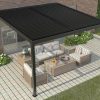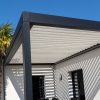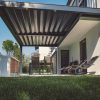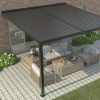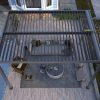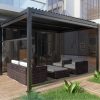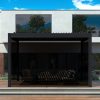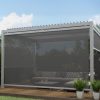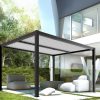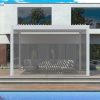Blog
Basic pergola designs are often underrated, yet they deliver solid value with simplicity. They provide shade, structure, and style without overwhelming your yard. With fewer components, they’re easier to install and maintain. You’ll also find them more affordable than complex builds. Despite their name, basic designs can be customised with colours, materials, and accessories to match your home. They fit seamlessly into modern and traditional spaces, offering versatility and year-round usability. Best of all, these pergolas are adaptable—ideal for everything from casual BBQs to serene garden corners. Less flash, more function.
Why do homeowners often overlook basic pergola designs?
When planning backyard upgrades, it’s tempting to aim big. Flashy structures and elaborate styles often get all the attention. Basic pergola designs? They’re brushed off as too simple or plain.
But here’s the rub—ignoring the basics can lead to wasted space, mismatched styles, and a backyard that doesn’t feel quite right.
A simple pergola can actually be the smartest choice. It provides shade, structure, and style without overwhelming your garden. Plus, it’s far more affordable and easier to maintain.
Key oversights with basic pergolas:
- They’re wrongly seen as boring or outdated.
- People assume they offer limited functionality.
- Homeowners forget how versatile they really are.
So before splashing out on the biggest design in the book, take a second look at simpler structures. You might find they fit the bill perfectly.
What mistakes can happen when choosing basic pergola designs?
Plenty can go wrong when picking a pergola, even if it’s a straightforward design. The most common error? Thinking all “basic” means the same thing.
Some skip proper measurements or choose unsuitable materials. Others forget to consider local regulations or ignore how sunlight moves through their yard.
These blunders not only cost time and money—they can also lead to regrets.
Common pergola planning mistakes:
- Undersized or oversized structures for the yard
- Ignoring council rules or zoning restrictions
- Choosing weak materials that don’t suit the climate
- Not matching the pergola with existing architecture
Being smart early on saves you from having to start over. You’ll also create a space that’s functional, legal, and matches your lifestyle.
Bold move? Take your time and explore various basic pergola designs that suit your specific layout and climate.
How do poor pergola design choices affect backyard enjoyment?
Picture this: your pergola looks great—until it doesn’t. It’s in the wrong spot. The shade hits too late. The structure warps in the sun. Suddenly, it’s more trouble than it’s worth.
Bad choices in layout, materials, or size can zap the enjoyment right out of your backyard.
Not to mention, you might end up using the space far less than expected. The pergola becomes a decorative element instead of a functional one.
Frustrations caused by poor design:
- Wasted backyard space that doesn’t get used
- Inconsistent shade throughout the day
- Increased wear and tear due to poor materials
- Cluttered or awkward backyard layout
To avoid these pitfalls, it’s worth getting your hands dirty during the planning phase. Visualise how the pergola interacts with your yard across all seasons.
What are the best materials for basic pergola designs?
When it comes to strength, style, and budget, choosing the right material is everything. Timber, steel, and aluminium are popular choices—but each has pros and cons.
Timber is classic and charming, but needs upkeep. Steel is ultra-durable but can get hot. Aluminium is low-maintenance and sleek but might lack that cosy, organic feel.
| Material | Pros | Cons |
| Timber | Natural look, versatile | Needs regular sealing |
| Steel | Strong, durable, sleek | Can rust, hotter to touch |
| Aluminium | Lightweight, low maintenance | Less natural appearance |
Also, keep local weather in mind. In coastal areas, opt for rust-resistant materials. In bushfire zones, non-combustible options are a must.
Got a smaller yard? It’s worth looking into design tips for small backyard pergolas that keep things feeling open and breezy with the right materials.
How can you customise basic pergola designs for modern yards?
Just because it’s basic doesn’t mean it has to be boring. Customising your pergola lets you blend functionality with flair.
You can choose from colour-matched paints, decorative posts, or adjustable louvres. Even a small change, like integrated lighting or retractable canopies, can make a big difference.
Ways to personalise your pergola:
- Paint or stain to match home style
- Add climbing plants for natural shading
- Install LED lighting or fans
- Use retractable fabric for a flexible cover
Some of the most stylish backyards start with a basic structure and build up with clever touches. That’s the Aussie way—simple, functional, yet full of character.
You’d be surprised how many affordable ways to enhance a standard pergola frame—worth a look if you’re keen to add a bit of character without going over budget.
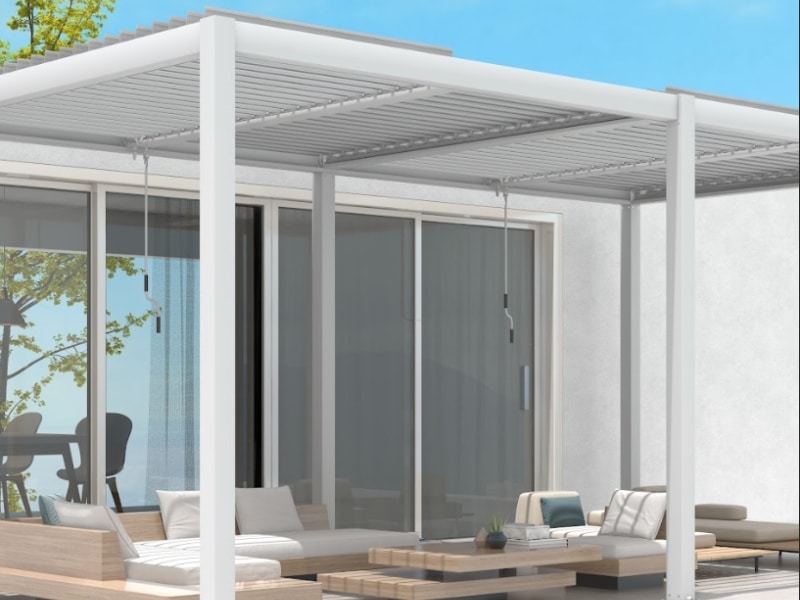
Are flat roof pergolas a good option for Australian homes?
Absolutely. Flat roof pergolas offer a clean, modern look that works with a variety of house styles, especially contemporary Aussie homes.
They’re easier to construct and often cheaper than gabled or pitched versions. However, drainage and shade angles are critical.
Flat roof pergola pros and cons:
- PRO: Streamlined and affordable
- PRO: Easier to build and install
- CON: May pool water if not angled right
- CON: Can trap heat if poorly ventilated
To avoid issues, use angled battens or translucent sheeting for better light and runoff. In high-rainfall areas, a slight pitch helps with drainage.
Flat roof options can be both stylish and efficient, especially when designed with climate in mind.
What is the difference between gazebos and pergolas?
These three often get lumped together, but they serve different purposes.
A gazebo is a fully-roofed freestanding structure, often used for events or seating. A pergola? It’s the middle ground—open-roofed, structured, and versatile.
Comparison breakdown:
- Gazebo: Full roof, enclosed space, often circular or octagonal
- Pergola: Open or slatted roof, used for shade or pathways
Each adds charm, but pergolas offer more flexibility in function and design.
If you’re planning a new outdoor setup, it’s smart to check out deck roof regulations Australia-wide so you stay clear of any council hiccups.
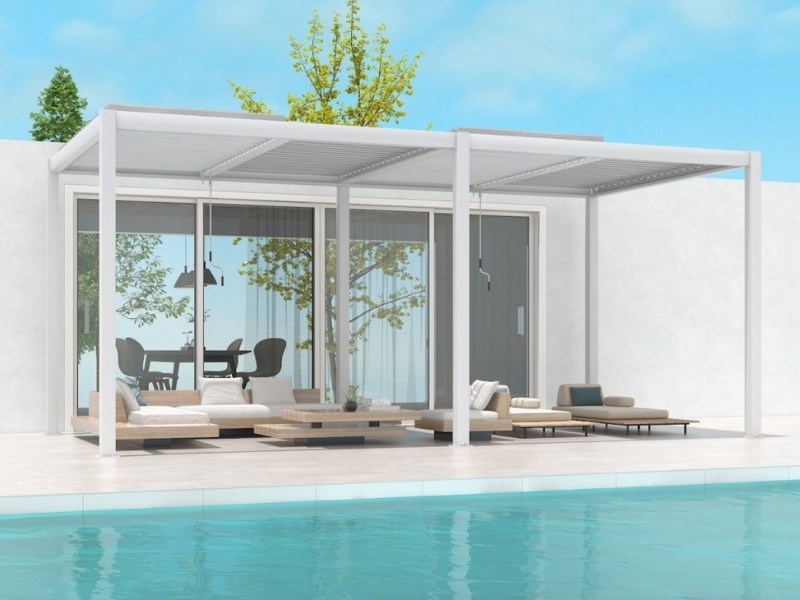
Is a basic pergola design the right choice for your home?
So, is simpler better? For many Aussie homes, it absolutely is.
A basic pergola can be functional, stylish, and affordable. With the right material, thoughtful planning, and smart customisations, it transforms your yard into a year-round retreat.
Plus, it’s easier to maintain and often blends seamlessly with your existing layout.
If you’re still unsure, why not get insights from the team at Unique Pergolas to help choose the best fit for your space?

